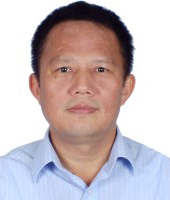
Prof. Youguang Guo
University of Technology Sydney (UTS), Australia
Speech Title: Characterization of magnetic properties of advanced electromagnetic materials for developing high-performance electromagnetic devices
Youguang Guo (Senior Member, IEEE) received a B.E. degree from Huazhong University of Science and Technology, Wuhan, China, in 1985, the M.E. degree from Zhejiang University, Hangzhou, China, in 1988, and the Ph.D. degree from the University of Technology Sydney (UTS), Sydney, NSW, Australia, in 2004, all in electrical engineering. He is currently a Professor at the School of Electrical and Data Engineering, UTS. His research fields include the measurement and modeling of properties of magnetic materials, numerical analysis of the electromagnetic field, electrical machine design optimization, and power electronic and drives.
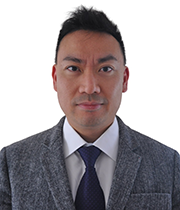
Prof. Kwan San Oscar HUI
Prince Mohammad Bin Fahd University, Saudi Arabia
Speech Title: Exploring Phosphorus-Based Anode Materials for Potassium-Ion and Lithium-Ion Batteries with 10C Rate Capability
Kwan San Oscar Hui is a Full Professor in the Department of Mechanical Engineering at Prince Mohammad Bin Fahd University in the Kingdom of Saudi Arabia. Before this role, he served as a Lecturer in Mechanical Engineering (2016-2019) and as a Reader in Energy Storage and Conversion (2019-2024) at the School of Engineering, University of East Anglia, UK. He has also held academic positions as an Assistant Professor in the Department of Mechanical Engineering at Hanyang University, South Korea (2013-2016), and as a Lecturer in Systems Engineering and Engineering Management at City University of Hong Kong (2008-2013). Dr. Hui earned his PhD in Mechanical Engineering from the Hong Kong University of Science and Technology in 2008.
Dr. Hui has been recognized among the world’s top 2% of scientists in the fields of Materials, Energy, and Nanoscience & Technology from 2020 to 2024. He has published 263 peer-reviewed SCI papers in prestigious journals, including Energy & Environmental Science, Advanced Materials, Advanced Energy Materials, Nano Energy, and ACS Nano. His h-index is 65, with a total of 13,306+ citations (Web of Science). Dr. Hui is the holder of one US patent (US9040007B2) and serves on various international expert panels, including the Slovak Research and Development Agency. He reviews proposals for the Newton International Fellowships at the Royal Society, UK, and is a member of the UKRI Talent Peer Review College. He holds full membership with the Engineering and Physical Sciences Research Council (EPSRC) in the UK and is a Fellow of the Royal Society of Chemistry (UK) and a Fellow of the Higher Education Academy (UK).
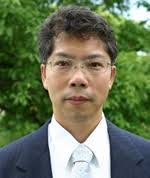
Prof. Katsuyuki Kida
University of Toyama, Japan
Professor Katsuyuki Kida was born in 1968 in Osaka, where he studied mechanical engineering at Osaka University from 1988. Apart from course work, he studied rolling contact fatigue (RCF) occurring in TiC and TiN coated steels using both X-ray diffraction and scanning acoustic microscopy. After graduation he pursued his academic career and obtained a Ph.D. in engineering mechanics in 2000, investigating RCF problems of all-Si3N4 bearings. By observing cracking and flaking failure under RCF, he succeeded in explaining the material`s features from the viewpoint of fracture mechanics. From 2000 he focused his work on investigating the contact problems of several materials used in machine elements. He has also continued fundamental research on contact problems, for which he received ‘The Best Paper Prize (FFEMS PRIZE)’ from ‘Fatigue & Fracture of Engineering Materials & Structures’ journal in 2005. The awarded papers reported establishing a crack growth mechanism under contact pressure, a problem previously unsolved for over 70 years since S. Way’s proposed theory. His research interests now include the development of three dimensional scanning Hall-probe microscope technologies, fatigue phenomena in polymer bearing, crack growth mechanism under contact stresses and refinement of high-carbon steels.
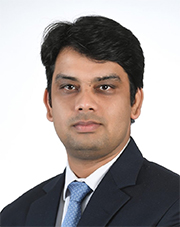
Assoc. Prof. Kamran Ahmed Khan
Khalifa University of Science and Technology, Dubai, UAE
Dr. Kamran Ahmed Khan is an Associate Professor and Associate Chair of Graduate Studies in the Department of Aerospace Engineering at Khalifa University of Science and Technology, Abu Dhabi, UAE. He received both his M.Sc. and Ph.D. degrees in Mechanical Engineering from Texas A&M University, USA. Before joining Khalifa University, he worked as a post-doctoral fellow at King Abdullah University of Science and Technology, Saudi Arabia. Dr Khan is a head of Mechanics of Advanced Materials and Composites Group and co-founder of Advanced Digital & Additive Manufacturing Group. Dr. Khan's research interests include the mechanics of advanced manufacturing and materials technologies, focusing on composites structures, multifunctional composites, and architected metamaterials with industrial impact. His contributions include developing programmable self-sensing composites, pioneering work in origami-inspired foldable composites, two-way shape memory composites, 2D material-enhanced sensors and actuators for aerospace, robotics, and deployable applications. His work in additive manufacturing includes 3D/4D printed metamaterials, ultra-light lattices with enhanced buckling resistance and energy absorption, and topology optimization for heat sinks and structures. He has developed advanced Multiscale-Multiphysics models for smart materials, multifunctional composites, and lattice structures, featured in digital media. Dr. Khan is among Stanford University’s 2023-2024 World’s Top 2% of Scientists. He has published over 150 journal articles authored/co-authored books and book chapters. He has delivered invited talks at top universities and conferences. He has served as Editor, Review Editor and co-chaired international conferences. He is an active member of The American Society of Mechanical Engineers, Society of Engineering Science and American Society of Composites.
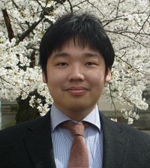
Prof. Koshiro Mizobe
University of Toyama, Japan
Koshiro Mizobe is a professor in the Department of Mechanical Engineering at the University of Toyama, Japan. He has published over 50 papers in various research fields including: evaluation of stress intensity factors, repeated heating, homology evaluation of microstructure, and polymer bearings. Koshiro studied mechanical engineering at Kyushu University, Japan, graduating in 2013. He studied the repeated quenching refinement method of high-carbon chromium steels in his PhD course. For this work he received the Research Fellowship for Young Scientists in 2013-2014 from the Japan Society for the Promotion of Science as well as Top Young Researcher Award in 2012 from Kyushu University. Since 2015 he has been an assistant professor in the Department of Mechanical Engineering at the University of Toyama. He has won some best paper awards from international committees (ICMDME, CMPSE and ICMTM) and received some grants (25th ISIJ research promotion grant from the Iron and Steel Institute of Japan and research promotion grant from JKA). His current research topics with a brief explanation are as follows. Repeated heating method Martensitic high-carbon high-strength bearing steel is one of the main alloys used for rolling contact applications where high wear resistance is required. Refining the prior austenite grain size through repeated heating is a process commonly used to enhance the material’s strength. He studied the effect of repeated heating on the microstructure near inclusions through the rolling bending fatigue tests. Development of hybrid polymer bearings Koshiro is focusing on polymer bearings because it is suitable for the no lubricant situation and the corrosive situations. In particular, he focuses on PEEK which is a tough semi-crystalline thermoplastic polymer and PTFE which has low friction coefficient. Now, he develops the combination of PEEK races-PTFE retainer bearings.
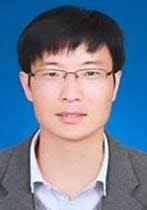
Prof. Liguo Shen
Zhejiang Normal University, China
Speech Title: Advanced Separation Membrane Materials
Dr. Liguo Shen is a Professor at Zhejiang Normal University, China, specializing in membrane separation technologies. He earned his Ph.D. in Chemistry and Materials Science from the Chinese Academy of Sciences (SINAP) and gained international research experience at the Max Planck Institute of Colloids and Interfaces in Germany.Dr. Shen’s research focuses on innovative membranes for water purification and oil/water separation, including hydrogen-bonded organic frameworks and MXenes-based membranes. His interdisciplinary work, combining chemistry, materials science, and fluid dynamics, has led to significant advances in environmental sustainability.
He has published over 220 SCI papers in journals such as Chemical Society Reviews and Water Research, including 27 highly cited papers and 12 hot papers, with more than 11,000 citations and an H-index of 64. He is the lead editor of the Wiley book Membrane Technology for Environmental Remediation: From Principles to Applied Solutions. Dr. Shen has filed 65 national invention patents, 35 of which have been granted and successfully commercialized.
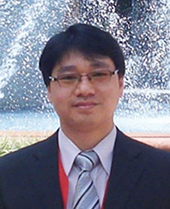
Prof. Ziqi Sun
Queensland University of Technology, Australia
Speech Title: Rational design of 2D nanocatalysts for sustainable energy technologies
Prof. Ziqi Sun, Fellow of the Higher Education Academy and Fellow of the Royal Chemical Society, is currently a full Professor, ARC Industry Mid-Career Fellow and ARC Future Fellow at the Queensland University of Technology (QUT), Australia.
Ziqi received his PhD degree from Institute of Metal Research, Chinese Academy of Sciences in 2009. After one-year experience as NIMS postdoctoral fellowship (Japan), he joined University of Wollongong (UOW), Australia in 2010 and moved to QUT as a faculty member in 2015. His research interest includes the rational design of low-dimensional nanomaterials, especially self-assembling 2D structures, for sustainable energy and environmental technologies, such as rechargeable batteries, green hydrogen production, and industry catalysis. Ziqi has published over 200 refereed articles in field-leading journals, such as Nature Nanotechnology, Nature Communications, Journal of the American Chemical Society, Advanced Materials, etc. Ziqi also serves as the Editor-in-Chief of Sustainable Materials and Technologies (IF = 9.6) and Handling Editor of Physics Open.
